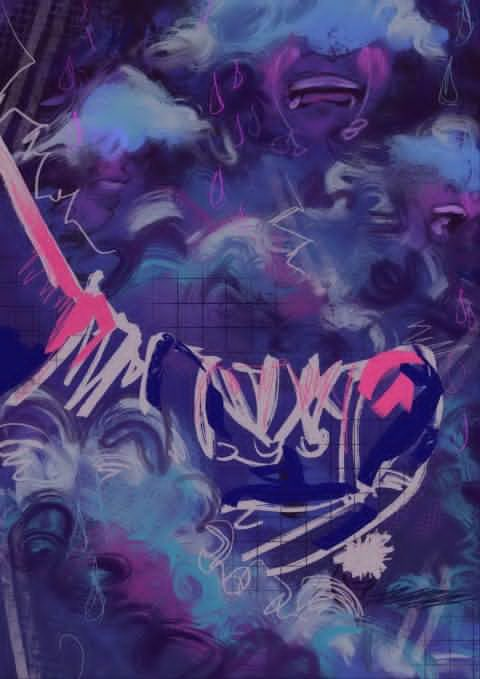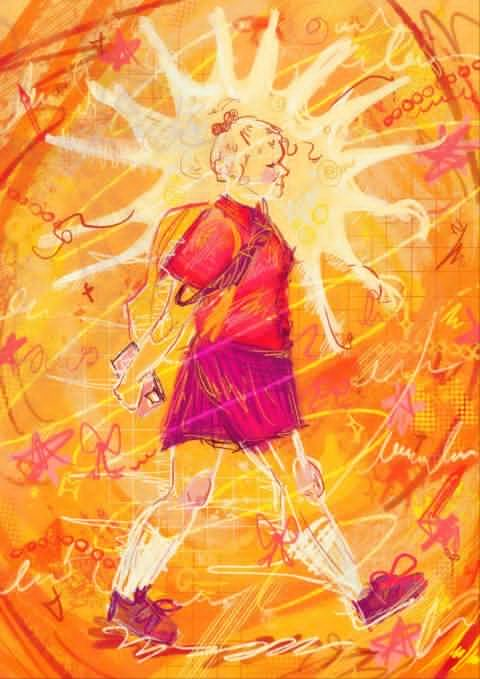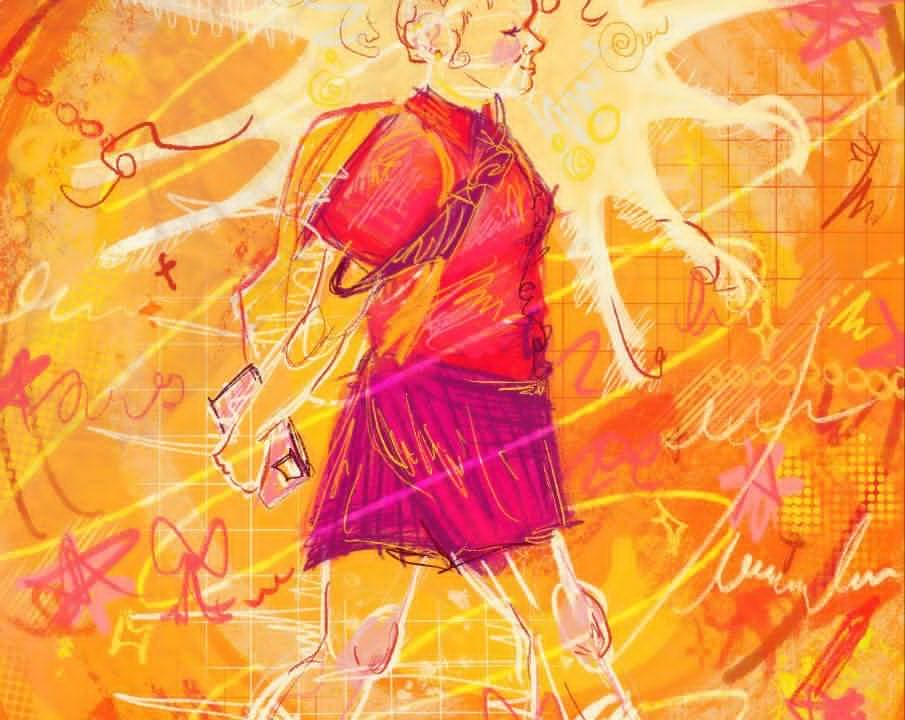My name is Sophia. I am a daughter, a student, a friend. I am a form representative, an actor, a dancer. I play volleyball and I hang out with my friends and I do public speaking and I spend hours on TikTok at a time. I laugh and I cry and I worry and I mess up.
I am human.
But to others, I am not. I have to be more than that, than the sum of my parts.
I am a daughter, but my success is non-negotiable. I am a student, yet one mistake and the frail facade I’ve built for myself at school splinters into a million pieces. I am a friend, yet I feel disconnected from my people as I am often far away. The price of success is that you must consistently function at a level above average. When everyone is watching you, every move must be precise, calculated.
Being a teenager-as many of you reading will relate to-is a time of growth. You have to push past the boundaries of childhood to become an adult, and that means making mistakes and doing things wrong. But when you are in a position where you cannot do wrong in order to maintain your success, you reach an impasse.
The other day I heard a girl say something that stuck with me. We were doing a quiz in class, and I had written a joke answer to one of the questions to have a laugh with my friends. I regretted this after the fact, and the girl marking it was understandably not impressed. I overheard her remark to her friend, “isn’t she [referring to me] supposed to be the role model for our year or something?”. This was interesting to me. She did have a point; the previous year I was elected as the school council representative for my year group. Part of that role was being a ‘role model’ for the other students. She had every right to think that about me, because that was the narrative being pushed for me. While I understood her point of view, I also had my own thoughts.

Art by Annabelle Waters
I want to start with defining what a role model is. For me, a role model is someone with more life experience than you, a person you can trust and seek guidance in. Personally, my role models are my parents and teachers, as even though they have their faults, they generally manage to set me in the right direction. However, I believe that the concept of a ‘role model’ has been greatly exacerbated in recent years, and has led to idolization and worship, particularly in celebrities.
Our generation looks to older, more worldly people than ourselves, such as influencers on social media, actors, and singers, as idols to act and behave like, when in actuality, we don’t know them at all. Herein, a paradox is created. How can your role model be someone you’ve never met personally, never interacted with, never had a conversation with? How can you try to model your behaviour off of someone you know nothing about? I feel this sentiment can be reflected upon myself and many other young leaders within schools and communities. While yes, we are in positions of importance and have to behave a certain way, we are still humans, still teenagers. Someone who doesn’t know me, like the girl I mentioned previously, only sees what is presented to everyone else, whereas to my friends who spend time with me and know me well, I’m just Sophie. They know me well enough to know that there are bad parts to me, and they accept and love me despite it.
The truth is there are no entirely ‘good’ people. It’s impossible. Everyone makes mistakes and does things they regret. It’s a part of adolescence, a part of being human.
Last year, when I was trying to achieve perfection within myself, I was scared of messing up. I cared deeply what people thought of me and tried to appease people as much as possible, even people I actively disliked. Upon reflection, this was a huge waste of time that could’ve been better spent with people I liked being around and doing things I was passionate about. I tried so desperately to be the ‘role model’ that everyone believed I was, but it’s hard being something you’re not, because I don’t believe I am a role model. I think there are definitely things I’ve done that could be looked up to, and should be looked up to, but it’s unrealistic and unhealthy to keep that standard up forever; you’ll never grow.

Art by Annabelle Waters
Of course, prominent leaders like presidents and prime ministers should be kept to a high standard; you cannot ask the same of 16-year-olds. A survey conducted by CNN found that 27% of teenagers aged 13-17 face burnout, a statistic which is simply too high to ignore. The fact that society’s expectations force teens to give up their passions, because they are simply too exhausted, is unacceptable. We have got to do better for our young people.
Bottom line, nobody’s perfect, least of all teenagers, and the effect of these expectations on young people leads to burnout, lack of motivation and paranoia over every slight mistake. It’s important to give grace and understanding, as it’s a tough lot to have to project perfection when you yourself are still learning how to just be a functioning member of society. All we can do is try our best and hope to do some good along the way.
